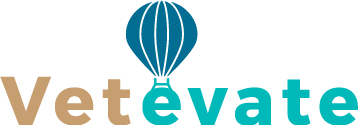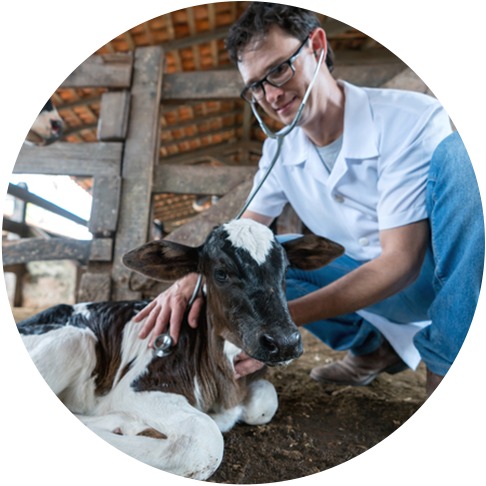For those who want to build a career working with animals, the job search process can be both exciting and overwhelming. From veterinary clinics to shelters, pet stores to wildlife rehabilitation centers, the animal care industry is broad and varied, with each setting offering its own requirements, expectations, and rhythms. One of the most effective ways to navigate this landscape is by using veterinary job boards—dedicated platforms that serve as centralized hubs for animal-related employment opportunities. Whether you’re just starting out or looking to grow in a specialized area, these boards offer a focused, relevant alternative to general job search websites.
Veterinary job boards are designed specifically for animal-focused careers, which means that every job listing is relevant to your passion. Instead of sifting through countless unrelated listings on a general platform, you’re presented with opportunities that are already aligned with your interests and experience. This makes your job search more efficient and more rewarding. You’re not wasting time reading job descriptions for unrelated fields—you’re actively connecting with employers who understand the value of working with animals and are seeking people like you to join their teams.
What makes these platforms especially powerful is that they attract employers who are committed to animal health and welfare. Whether it’s a general practice clinic, a specialty animal hospital, a shelter, a zoo, or a nonprofit rescue organization, the employers who post on veterinary job boards tend to be mission-driven. That makes it more likely you’ll find not just a job, but a workplace where your contributions are meaningful, your values are shared, and your role is essential.
Crafting a Strong Profile and Resume
When using a veterinary job board, one of the best practices is to treat your profile and resume as more than just a formality. These are your first impressions, and in many cases, they determine whether or not you’ll be contacted by potential employers. A well-written, animal-focused resume tailored to the kinds of roles you’re pursuing can set you apart in a competitive market. Your resume should clearly showcase your relevant experience, such as time spent volunteering at animal shelters, internships at vet clinics, pet sitting, animal handling, or any academic work related to biology or animal science.
Alongside your resume, your job board profile should give a sense of who you are as a person and a professional. Include a summary that explains your passion for working with animals and what kind of environment you’re looking for. If you have a preference for certain species—such as small animals, equine, exotics, or farm animals—make that clear. Job boards often allow you to set preferences that help employers find candidates who match their specific needs. The more thoughtfully you set up your profile, the more relevant the opportunities that come your way will be.
Another best practice is to keep your profile updated. If you’ve taken a new course, completed a certification, or added more hands-on experience, make sure it’s reflected in your materials. Employers who use these boards are often hiring for time-sensitive roles and are more likely to reach out to candidates who appear active and engaged. Keeping your profile fresh signals that you’re serious, available, and continually improving your skills—which is exactly what most animal care employers are looking for.
Using Search Filters Strategically and Setting Alerts
A key advantage of veterinary job boards is their search functionality. These platforms offer advanced filters that let you narrow your job search based on location, job type, species focus, experience level, and other criteria. To make the most of these tools, it’s important to go in with a clear sense of what you’re looking for. Think about your ideal work setting, commute range, schedule needs, and whether you’re open to remote work, contract positions, or internships. With that clarity, you can use the filters strategically to create a list of jobs that are actually worth applying for.
Many veterinary job boards also allow you to set alerts for specific search criteria. This is one of the most useful features, and one that many job seekers underutilize. Once you’ve refined your filters, create a job alert so that you’re notified when a new listing that matches your preferences is posted. This helps you stay ahead of the curve and apply early, which can be critical in a competitive field. Employers often review applications as they come in, and being one of the first to apply can increase your chances of landing an interview.
In addition to setting alerts, make it a habit to check the job board regularly, even if you receive notifications. Sometimes employers post new jobs without tags or classifications that would trigger your alert settings. A quick manual scan once or twice a week can help ensure you’re not missing any promising opportunities. The more consistent and proactive you are in your use of the job board, the more control you’ll have over your job search journey.
Applying Thoughtfully and Following Up
Once you’ve found roles that interest you, take the time to apply thoughtfully. One of the most common mistakes candidates make is using the same generic resume and cover letter for every application. Instead, tailor your materials to each job. Reference specific qualifications mentioned in the job description, and explain how your background and interests align with the organization’s mission. Even small adjustments to your wording can show that you’ve done your research and are genuinely interested in the role. Veterinary employers are looking for candidates who care—not just about animals, but about the team, the clients, and the overall purpose of the work.
After submitting your application, consider sending a short, polite follow-up email a week or so later. Many job boards provide contact information or allow you to message employers directly. A quick message reiterating your interest and thanking them for their time can help keep your name top-of-mind. This level of professionalism not only shows initiative but also mirrors the kind of communication skills that employers value in team-based, client-facing animal care environments.
Another best practice is to treat the application process as part of a larger relationship-building effort. If you see the same employer posting multiple jobs, or if you’ve applied in the past and weren’t selected, don’t hesitate to apply again when a new role appears. Veterinary and animal care communities tend to be tight-knit, and persistence—paired with professionalism—often pays off. By consistently showing up with thoughtful applications, you position yourself as a serious candidate who’s committed to the field.




